 Your new post is loading...
 Your new post is loading...

|
Scooped by
Gust MEES
|
There are two theories of intelligence, referred to simply as mindsets, that students can have about their intellectual abilities, although no one has purely one or the other, she said. Individuals with more of a fixed mindset believe that their intellectual abilities are simply fixed. They tend to approach learning with the goal of looking smart, and they often shy away from challenges because they believe that having to work hard at something or making mistakes means they don’t have high ability. Those with more of a growth mindset, on the other hand, believe that abilities can be developed—they are more likely to see effort as something that propels learning and to see setbacks as opportunities to build new skills.
These divergent mindsets are also reflected in how individuals process mistakes on a neurological level. In a study of 25 undergraduate students, Jason S. Moser (Michigan State University) and colleagues tasked participants with rapidly identifying the center letter in a string of similar text (e.g. “M” vs. “N”) while monitoring activity of the anterior cingulate cortex (ACC) and related brain areas associated with cognitive control of behavior, via electroencephalography. The students also completed a scale designed to measure fixed and growth mindsets.
Over the course of 480 trials, participants with growth mindsets demonstrated greater error positivity and greater electrical activity in the ACC and related brain regions associated with attending to mistakes compared with those with fixed mindsets. This boost in Pe was also associated with greater posterror accuracy, suggesting that these participants were processing errors more deeply, allowing them to make corrections immediately. Learn more / En savoir plus / Mehr erfahren: http://www.scoop.it/t/21st-century-learning-and-teaching/?&tag=carol+dweck http://www.scoop.it/t/21st-century-learning-and-teaching/?&tag=Growth+Mindset

|
Scooped by
Gust MEES
|

|
Scooped by
Gust MEES
|
What would you say are a few of the biggest myths about growth mindset?
OK, myth No.1 is the myth that it’s all about effort, and that you instil it by praising effort. Effort is one factor that leads to learning. So the ultimate value is growth, progress, learning. And effort is one thing that leads there but there are many other things – strategies, using resources, getting advice, guidance and mentorship, and when people leave that out and just praise effort, it’s not transmitting a growth mindset. Adults have nagged children for centuries to try harder. That’s not a growth mindset, it’s an adult nagging a child to try harder!
Also, we find that when teachers think it’s just about effort and praising effort they may praise effort that isn’t even there, or that’s not effective. So if a child tries hard at something and you say ‘great job, you tried hard’, but they didn’t make progress, they didn’t advance, you’re actually conveying a fixed mindset because you’re saying ‘great effort, I didn’t really expect you to do that, and I don’t expect you to do that, so I’m trying to make you feel good about not doing it’. So we need people to understand that it’s appreciating a variety of process variables that lead to learning.
The second myth is that you can teach students a lesson on growth mindset and put a poster up in the front of the room, and that’s that, that they will have a growth mindset from then on. And we know if the teacher doesn’t then embody a growth mindset, if teachers don’t embody growth mindsets in their teaching practices, in the way that they give feedback when the child is stuck, and the way they present a new unit, in the way that they give opportunities for revision and growth of understanding – if they don’t embody that growth mindset, they are not teaching it. And in fact, if their behaviour contradicts the poster at the front of the room, then maybe they’re doing a disservice. Learn more / En savoir plus / Mehr erfahren: http://www.scoop.it/t/21st-century-learning-and-teaching/?&tag=carol+dweck http://www.scoop.it/t/21st-century-learning-and-teaching/?&tag=Growth+Mindset

|
Scooped by
Gust MEES
|
In science, we build a firm foundation and then we keep renovating the house. We find interesting results, we are fascinated by them, we don’t always trust them, so we go back and replicate them. We also challenge them by asking, where will this not work? When does the effect go away? How can we use better methods to test our theories?
As part of this process, scientists ask each other questions. Recently, other scientists asked us some questions about three of our papers. We took this very seriously, carefully considered each inquiry, delved into the studies again (in some cases reanalyzing the data), and prepared three documents, each detailing our process and our findings (here, here, and here). In each case, we showed that the conclusions reached in the paper were sound. But, as with anything that helps make science better, we were grateful for the questions because they pointed out areas for improvement or clarity, and because we believe in open science.
It is important however to consider these questions in light of a large body of work. The growth mindset story does not rest on a handful of isolated studies. Research in this area has been ongoing for 30 years and the field has amassed a large body of work. A meta-analysis published in 2013 found 113 studies conducted by many authors and concluded that mindsets are a significant factor in people’s self-regulation toward goals.
Meta-analyses are helpful, but not the final word. Government data collected at a country level—all the 10th grade students in the country of Chile (over 160,000)—showed that holding a growth mindset predicted academic achievement at every socioeconomic level. Recently, the state of California, collecting data from over 100,000 middle schoolers, found that students’ mindsets were a good predictor of their test scores. And this doesn’t include many experimental studies that have carefully oriented children (or adults) toward different mindsets and found effects on outcomes. It is highly unlikely that mindset is a phantom phenomenon. Learn more / En savoir plus / Mehr erfahren: http://www.scoop.it/t/21st-century-learning-and-teaching/?tag=carol+dweck

|
Scooped by
Gust MEES
|

|
Scooped by
Gust MEES
|

|
Scooped by
Gust MEES
|

|
Scooped by
Gust MEES
|

|
Scooped by
Gust MEES
|

|
Scooped by
Gust MEES
|
"I don't divide the world into the weak and the strong, or the successes and the failures... I divide the world into learners and nonlearners." --Benjamin Barber, sociologist. So how do you cultivate a growth mindset if it doesn’t come naturally? And how do you hold onto it if you’ve got it already? Below are 25 recommendations to guide you in the right direction. 1. Begin with the end in mind.2. Accept responsibility for your own learning.3. View challenges as opportunities for growth.4. Have confidence in yourself as a competent, effective learner.5. Create your own learning toolbox.6. Use technology to your advantage.7. Teach/mentor others.8. Play.9. Look at the science.10. Try new things on a frequent basis.11. Learn from those who have a strong growth mindset. Read more in the article, please...
Learn more:
- http://www.scoop.it/t/21st-century-learning-and-teaching/?tag=MindShift...

|
Scooped by
Gust MEES
|

|
Scooped by
Gust MEES
|
This chart helps lay out the basic idea behind changing your mindset. You can use a 'fixed' or a 'growth' mindset to enhance your life. Which will you choose?
|

|
Scooped by
Gust MEES
|
In Carol Dweck’s famous study on growth mindset, Dweck taught high school students about brain plasticity and about how the characteristics of intelligence are not fixed. The idea was to convince students that they had control over improving their academic ability. Years later, these students scored higher on standardized tests.
It’s tempting to think of the Dweck study as a near instant fix. You teach students, or yourself, the details of growth mindset. This takes about an hour. And then afterward your performance magically improves.
Although Dweck’s study has been supported by future studies, for example this one, I suspect there is a crucial missing element to the story. What behaviors did the students change after the lesson? Knowing this is the key to understanding how you can improve your own life.
Learn more / En savoir plus / Mehr erfahren: http://www.scoop.it/t/21st-century-learning-and-teaching/?&tag=carol+dweck http://www.scoop.it/t/21st-century-learning-and-teaching/?&tag=Growth+Mindset
August , 2017
In her celebrated book ‘Mindset: The New Psychology of Success’, Stanford university psychologist Carol S. Dweck makes a strong case backed up with scientific evidence for the power of mindset in shaping one’s success or failure in almost every facet of our life.Those with a fixed mindset mentality tend to be limited in their learning scope believing that their inner traits and abilities are biologically determined. On the other hand, people with a growth mindset embrace change and tend to learn more from life experiences because for them concepts such as skills, abilities and competencies are not fixated and can be developed through a process of error and trial.
In today’s post, we are sharing with you this handy infographic we created based on Marcus Guido’s post ’10 Ways Teachers Can Instill a Growth Mindset in Students’. Guido walks you through the different strategies you can use with your students to cultivate a growth mindset in your class and ultimately enhance students learning. Read his post to learn more about each of the strategies featured here.
The visual below is also available in PDF format from this link. Learn more / En savoir plus / Mehr erfahren: https://gustmees.wordpress.com/?s=growth+mindset https://gustmees.wordpress.com/?s=practice
Via Educatorstechnology

|
Scooped by
Gust MEES
|
An idea that is beginning to gain a lot of favour in educational circles at the moment is the notion of fixed versus growth mindsets, and how they might relate to students and learning. Based on the work of Stanford University psychologist, Carol Dweck, the idea of mindset is related to our understanding of where ability comes from. It has recently been seized upon by educators as a tool to explore our knowledge of student achievement, and ways that such achievement might be improved. Learn more / En savoir plus / Mehr erfahren: http://www.scoop.it/t/21st-century-learning-and-teaching/?&tag=Growth+Mindset

|
Scooped by
Gust MEES
|
False growth mindset is saying you have growth mindset when you don’t really have it or you don’t really understand [what it is]. It’s also false in the sense that nobody has a growth mindset in everything all the time. Everyone is a mixture of fixed and growth mindsets. You could have a predominant growth mindset in an area but there can still be things that trigger you into a fixed mindset trait. Something really challenging and outside your comfort zone can trigger it, or, if you encounter someone who is much better than you at something you pride yourself on, you can think “Oh, that person has ability, not me.” So I think we all, students and adults, have to look for our fixed-mindset triggers and understand when we are falling into that mindset.
I think a lot of what happened [with false growth mindset among educators] is that instead of taking this long and difficult journey, where you work on understanding your triggers, working with them, and over time being able to stay in a growth mindset more and more, many educators just said, “Oh yeah, I have a growth mindset” because either they know it’s the right mindset to have or they understood it in a way that made it seem easy. Learn more / En savoir plus / Mehr erfahren: http://www.scoop.it/t/21st-century-learning-and-teaching/?tag=Growth+Mindset https://gustmees.wordpress.com/2016/11/14/pssst-the-most-important-in-education-understanding/ https://gustmees.wordpress.com/2016/11/01/getting-ready-for-modern-education-first-try-to-understand-what-it-is/

|
Scooped by
Gust MEES
|
In the best guide I’ve found to learning this skill, “Thanks for the Feedback: The Science and Art of Receiving Feedback Well,” Douglas Stone and Sheila Heen of the Harvard Negotiation Project explain that feedback — both positive and negative — is challenging because it hits us in the vulnerable soft spot between our desire to grow and our deep need to be accepted and respected. The key to hearing feedback well, they argue, is to adopt what the psychologist and author Carol Dweck calls a “growth mindset.” People with a growth mindset believe that effort and challenge make us better, stronger and smarter, while those with a “fixed mindset” believe that our inherent assets are static no matter what we do.
Not all of the criticism kids face is constructive. Some of it is born out of ulterior motives or dark intentions, but the good news is that a growth mindset can protect kids from this sort of feedback as well. Learn more: - http://www.scoop.it/t/21st-century-learning-and-teaching/?tag=Growth+Mindset - http://www.scoop.it/t/21st-century-learning-and-teaching/?tag=Criticism

|
Scooped by
Gust MEES
|
Read an excerpt... Four-Dimensional Education: The Competencies Learners Need to Succeed October 2015 192 pages Copyright © 2015 by Center for Curriculum Redesign All rights reserved. ISBN-13: 978-1518642562 ISBN-10: 151864256X "A very thoughtful treatment of the competencies our students need to thrive in today’s (and tomorrow’s) world. This book will help educators understand and navigate the critical choices we are facing.” –Carol Dweck, Lewis & Virginia Eaton Professor of Psychology, Department of Psychology, Stanford University

|
Scooped by
Gust MEES
|
Stanford psychology professor Carol Dweck has become something of a cult figure in education and parenting circles. Her research into boosting student motivation has spawned a mini industry of consultants, sold more than a million books and changed the way that many adults praise children. Dweck believes too many students are hobbled by the belief that intelligence …
Praising effort alone Many parents and teachers have interpreted Dweck’s work to mean that they should praise a child’s effort, such as “I’m proud that you tried really hard,” or “I see how much effort you put into this.” Or teachers sometimes give A’s on assignments if a child has attempted all of the questions, regardless of whether the answers are good or not. “It’s like the consolation prize. ‘Oh, at least you worked hard,'” said Dweck. “What if they didn’t make progress or they didn’t learn?” Praising effort alone, she says, is useless when the child is getting everything wrong and not making progress. Either students will feel misled when they are eventually confronted with the reality of their low achievement, or the hollow praise will convey adults’ low expectations for them.
Learn more:
http://www.scoop.it/t/21st-century-learning-and-teaching/?tag=carol+dweck
http://www.scoop.it/t/21st-century-learning-and-teaching/?tag=Growth+Mindset

|
Scooped by
Gust MEES
|
Conclusion
Even though these weeks were considered a maker education summer camp, there was an expectation from the school and parents that the learning activities incorporated the expectations and rigors of a classroom environment. I could easily identify cross-curricular state and common core standards even though I never taught to THE standards. Never during the sessions were the young learners formally testing, asked to be quiet or sit still, or asked to finish quickly so we can move on. Yet, I believe each of the kids would say that they learned lots . . . . and had fun doing so.
Young makers are more capable than what people (adults) typically believe.
Instead, the making learning activities were structured to honor natural ways of learning along with developmentally appropriate practices. Sadly, it appears that some of these natural ways of learning were “conditioned” out of the young learners through more formalized education as I identified in my observations.
Incorporating making into a learning environment teaches lifelong learning skills such of perseverance, love of learning, working with others, and embracing challenges.
Learn more:
- https://gustmees.wordpress.com/2014/08/20/maker-space-a-new-trend-in-education-and-a-big-responsibility/
- https://gustmees.wordpress.com/2014/08/24/coding-a-new-trend-in-education-and-a-big-responsibility/
- http://www.scoop.it/t/21st-century-learning-and-teaching/?tag=carol+dweck

|
Scooped by
Gust MEES
|

|
Scooped by
Gust MEES
|
I am an adjunct faculty for several teacher education and educational technology programs. I have been so for a few decades. During that time I have noticed the changing nature of student behavio...

|
Scooped by
Gust MEES
|
|



 Your new post is loading...
Your new post is loading...

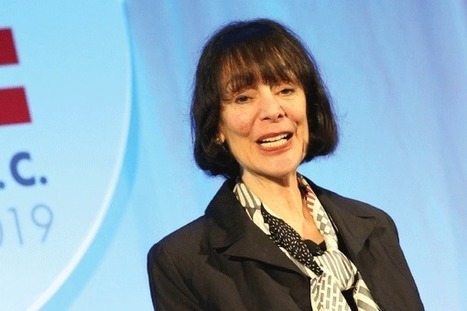







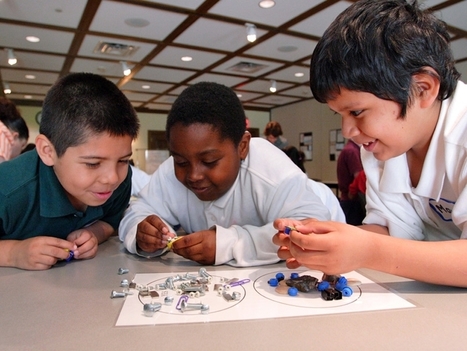


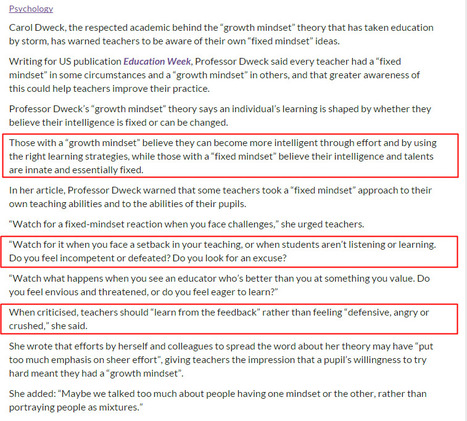



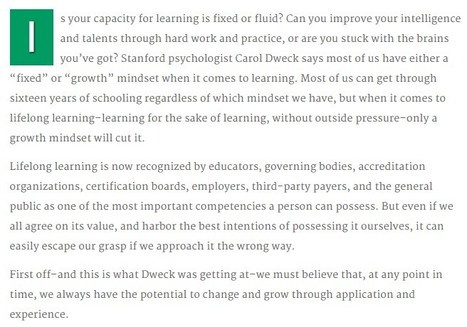

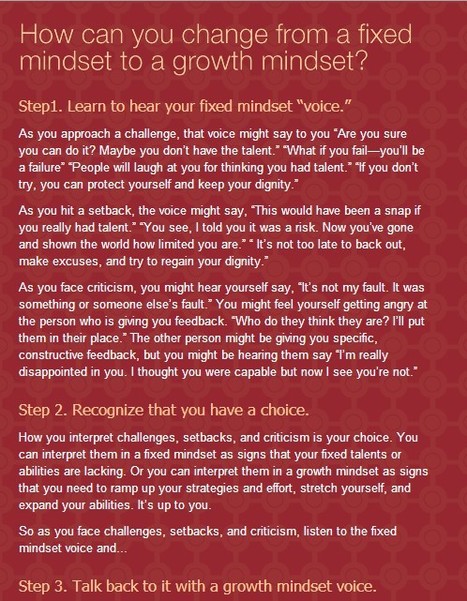



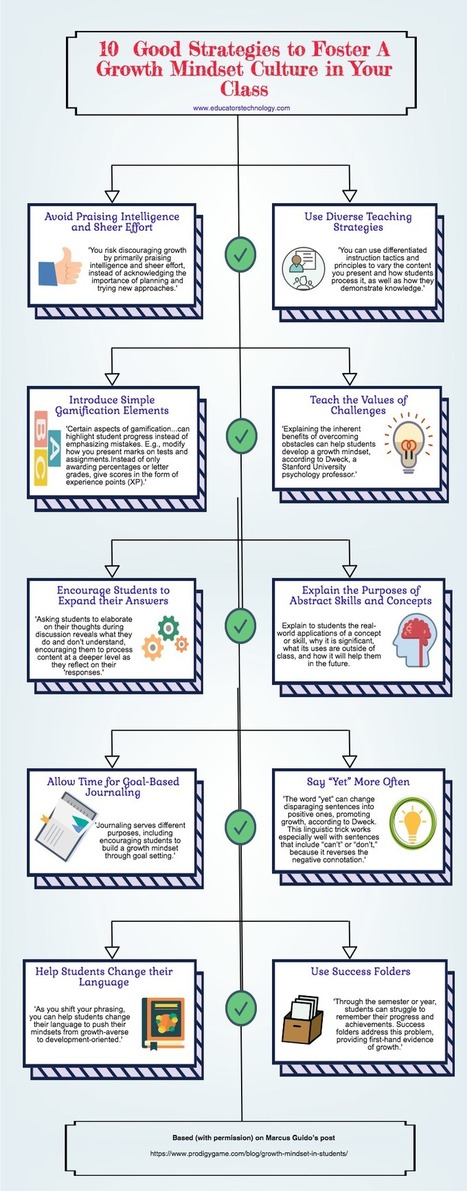

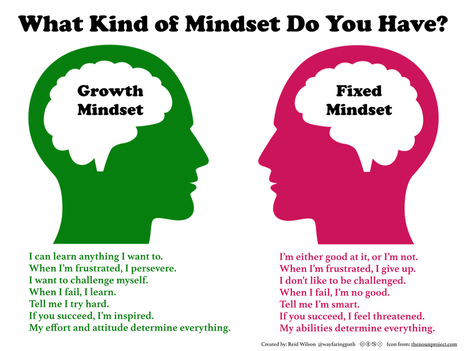



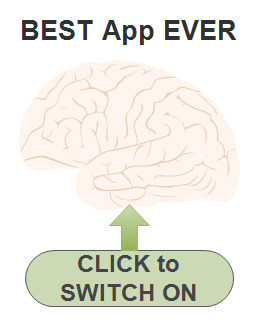

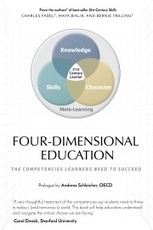



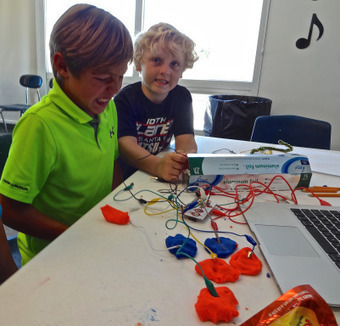


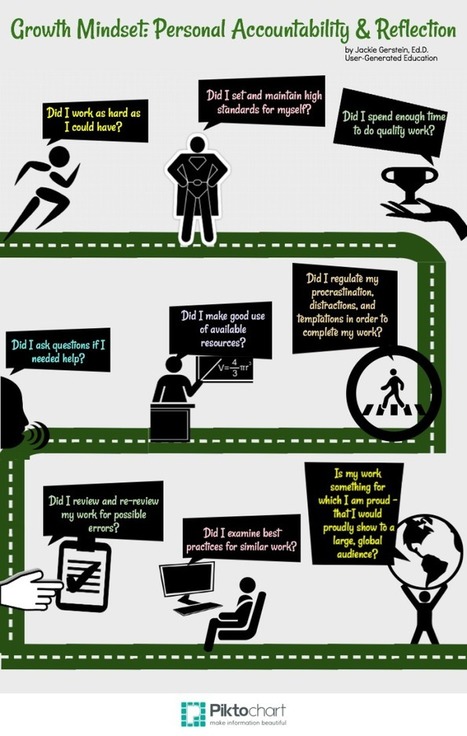







LIVESTOCK ANIMAL EXCHANGE
Testimonials
Raghuram Rastra
Productions to produce a new show about the Beefmaster breed. We continuously receive positive feedback from breeders and commercial cattlemen, so we continue to rely on The American Rancher for advertising opportunities. Great experience!”mineral for our cows this past spring. Now we are using the Vita Charge® Stress Tub and Stress Tub HEAT®. Even with the stress of …Read More
Mrs Sudana Bric
A great book for all ages! livestockanimalexchange.com
Animal Farm is a very good book. I personally think that it’s a book for all ages. For example, little kids can read it and just think it’s a fairy tale about animals whereas, older kids will probably get the true message and understand that it’s about power.
Mr Rob Roy
Animal Farm does not exactly fit the ideal of a modernist novel, as it is written using traditional forms—fable, fairytale, allegory—but it does fit the first two characteristics, at least to some extent. Orwell’s fable is a critique of the modern world, especially of Soviet i recomment https://www.livestockanimalexchange.com/
Gallery
ESCROW SERVICES
Veterinary Department
Dorper sheep breed
Angora Goats For Sale With Good Discount
Excited Student in College
Student in Library
Student Speech during her graduation
Students in Classroom
Published Notice
15 Oct
LEICESTER LONGWOOL SHEEP FOR SALE
LEICESTER LONGWOOL SHEEP FOR SALE Leicester Longwool sheep for sale The Leicester Longwool is one of the “luster longwool” breeds, so designated for the sheen and brilliance of their wool. The sheep appear to shine just after shearing, when the clean wool next to their skin catches the sunlight and makes them glisten for a…
12 Oct
RED BRAHMAN CATTLE FOR SALE
Here at https://www.livestockanimalexchange.com/ , we understand the value of purebred Brahman genetics. We emphasize performance, soundness, fertility and beef production in our Brahman herds. With both gray Brahman and red Brahman cattle for sale, Moreno Ranches is one of the top sellers of Brahman cattle in Florida and now in Texas, too. In fact, people looking for Brahman…
17 Oct
HOLSTEIN HEIFERS CATTLE FOR SALE
HOLSTEIN HEIFERS CATTLE FOR SALE, beef carcass meat, pregnant heifers as well as customers special orders based on the shipping within usa
Contact Us Today
Name *
First
Last
Numbers
Email *
Comment or Message *
CONTACT US ONLINE 24/7 LIVE CHAT
Contact Rent-A-Center online through our customer service inquiry and you will … make your experience more enjoyable, please call us or send us a message. Get answers to the most popular FAQs and easily contact us through either a secure email address, a mailing address WE ARE ALSO ONLINE 24/7 ON OUR LIVE CHAT FEEL FREE TO CONTACT US if we have been this successful in business, it’s because we are honest, reliable and always satisfy our customers,
The American Brahman breed of cattle originated from Bos Indicus cattle. These hardy cattle were originally brought to the United Stated from India. The American Brahman was the first beef cattle breed developed in the United States. The American Brahman are for the most part the result of a cross of four different Indian cattle breeds: Gyr, Guzerat, Nelore and Krishna Valley. Best place to buy livestock online at Livestock Animal Exchange.
The American Brahman cattle originated from a nucleus of approximately 266 bulls and 22 females of several Bos indicus varieties of cattle which were imported into the United States between 1854 and 1926. The American Brahman has been used to develop numerous other U.S. Beef Breeds of cattle including Brangus, Beefmaster, Simbrah and Santa Gertrudis.
Brahman cattle are known for their extreme tolerance to heat and are widespread in tropical regions. They are resistant to insects due to their thick skin. Brahman cattle live longer than many other breeds, often producing calves at ages 15 and older. Best place to order livestock online
At Bulter Brahmans we have both Polled Brahman Cattle as well as Horned Brahman Cattle. If you are looking for Polled Brahman bulls, Polled Brahman heifers, horned Brahman bulls or horned Brahman heifers, we always have a nice selection of American Brahman Cattle available for sale. Best place to buy livestock online within USA and worldwide with express delivery.
Buy Angus Cattle Online,
AVAILABLE CATTLE BRREDS FOR SALE:
Angus cattle for sale
Beefmaster cattle for sale
Brahman cattle for sale
Charolais cattle for sale
Fleckvieh cattle for sale
Girolando cattle for sale
Hereford cattle for sale
Holstein cattle for sale
Limousin cattle for sale
Jersey cattle for sale
AVAILABLE SHEEP BREEDS FOR SALE:
Awassi sheep for sale
Dorset sheep for sale
Dorper sheep for sale
Merino Sheep for sale
Leicester Longwool sheep for sale
Lincoln Sheep for sale
AVAILABLE GOAT BREEDS FOR SALE:
Alpine goats for sale
Boer goats for sale
Spanish goats for sale
Toggenburg goats for sale
White saanen goats for sale
Kalahari goats for sale
AVAILABLE CHICKEN FOR SALE
Boiler chickens for sale
For more details, do not hesitate to contact us.
https://www.livestockanimalexchange.com/en/product/alpine-goats-for-sale/
https://www.livestockanimalexchange.com/en/product/boer-goats-for-sale/
https://www.livestockanimalexchange.com/en/product/black-spanish-goats-for-sale/
https://www.livestockanimalexchange.com/en/product/kalahari-red-goat-for-sale/
https://www.livestockanimalexchange.com/en/product/toggenburg-goat-for-sale/
https://www.livestockanimalexchange.com/en/product/white-saanen-goats-for-sale/
https://www.livestockanimalexchange.com/en/product/angus-cattle-for-sale/
https://www.livestockanimalexchange.com/en/product/beefmaster-cattle-for-sale/
https://www.livestockanimalexchange.com/en/product/charolais-cattle-for-sale/
https://www.livestockanimalexchange.com/en/product/fleckvieh-cattle-for-sale/
https://www.livestockanimalexchange.com/en/product/girolando-cattle-for-sale/
https://www.livestockanimalexchange.com/en/product/hereford-cattle-for-sale/
https://www.livestockanimalexchange.com/en/product/holstein-cattle-for-sale/
https://www.livestockanimalexchange.com/en/product/limousin-cattle-for-sale/
https://www.livestockanimalexchange.com/en/product/jersey-cattle-for-sale/
https://www.livestockanimalexchange.com/en/product/brahman-cattle-for-sale/
https://www.livestockanimalexchange.com/en/product/awassi-sheep-for-sale/
https://www.livestockanimalexchange.com/en/product/dorset-sheep-for-sale/
https://www.livestockanimalexchange.com/en/product/dorper-sheep-for-sale/
https://www.livestockanimalexchange.com/en/product/leicester-longwool-sheep-for-sale/
https://www.livestockanimalexchange.com/en/product/lincoln-sheep-for-sale/
https://www.livestockanimalexchange.com/en/product/merino-sheep-for-sale/
https://www.livestockanimalexchange.com/en/product/boiler-chickens--for-sale/